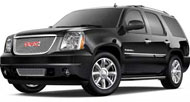New Jersey: Court Approves Private GPS Spying
Police are not alone in the ability to secretly use GPS devices to track someone without his knowledge, the New Jersey Superior Court’s Appellate Division ruled Thursday. A three-judge panel made this decision in the context of a privacy invasion suit brought by Kenneth R. Villanova against Innovative Investigations Inc after his now ex-wife hired the private-eye company to spy on him. She intended to document alleged infidelities prior to filing for divorce in May 2008. At the firm’s suggestion, Villanova’s wife installed the tracking device on her husband’s GMC Yukon-Denali which followed the vehicle’s every move for forty days.
“One who intentionally intrudes, physically or otherwise, upon the solitude or seclusion of another or his private affairs or concerns, is subject to liability to the other for invasion of his privacy, if the intrusion would be highly offensive to a reasonable person,” the appellate division wrote in a 1989 case summarizing the statute.
Attorneys for the private investigators countered that Villanova was tracked on public roads and had no expectation of privacy. Villanova had no tangible proof that he drove in any secluded location, which the court saw as the only place one’s privacy could be invaded.
“We find plaintiff’s arguments unpersuasive,” Judge Joseph F. Lisa wrote. “We hold that the placement of a GPS device in plaintiff’s vehicle without his knowledge, but in the absence of evidence that he drove the vehicle into a private or secluded location that was out of public view and in which he had a legitimate expectation of privacy, does not constitute the tort of invasion of privacy.”
The court found that it made no difference whether Villanova’s movements were tracked for forty minutes or forty days in the eyes of the law.
A copy of the decision is available in a 70k PDF file at the source link below.
Villanova v. Innovative Investigations (New Jersey Superior Court Appellate Division, 7/7/2011)
[Courtesy: Thenewspaper.com]
More by The Newspaper
Latest Car Reviews
Read moreLatest Product Reviews
Read moreRecent Comments
- Fred I would get the Acura RDX, to replace my Honda HR-V. Both it and the CRV seats are uncomfortable on longer trips.
- RHD Now that the negative Nellies have chimed in...A reasonably priced electric car would be a huge hit. There has to be an easy way to plug it in at home, in addition to the obvious relatively trickle charge via an extension cord. Price it under 30K, preferably under 25K, with a 200 mile range and you have a hit on your hands. This would be perfect for a teenager going to high school or a medium-range commuter. Imagine something like a Kia Soul, Ford Ranger, Honda CR-V, Chevy Malibu or even a Civic that costs a small fraction to fuel up compared to gasoline. Imagine not having to pay your wife's Chevron card bill every month (then try to get her off of Starbuck's and mani-pedi habits). One car is not the solution to every case imaginable. But would it be a market success? Abso-friggin-lutely. And TTAC missed today's announcement of the new Mini Aceman, which, unfortunately, will be sold only in China. It's an EV, so it's relevant to this particular article/question.
- Ajla It would. Although if future EVs prove relatively indifferent to prior owner habits that makes me more likely to go used.
- 28-Cars-Later One of the biggest reasons not to purchase an EV that I hear is...that they just all around suck for almost every use case imaginable.
- Theflyersfan A cheaper EV is likely to have a smaller battery (think Mazda MX-30 and Mitsubishi iMEV), so that makes it less useful for some buyers. Personally, my charging can only take place at work or at a four-charger station at the end of my street in a public lot, so that's a crapshoot. If a cheaper EV was able to capture what it seems like a lot of buyers want - sub-40K, 300+ mile range, up to 80% charging in 20-30 minutes (tops) - then they can possibly be added to some lists. But then the issues of depreciation and resale value come into play if someone wants to keep the car for a while. But since this question is asking person by person, if I had room for a second car to be garaged (off of the street), I would consider an EV for a second car and keep my current one as a weekend toy. But I can't do a 50K+ EV as a primary car with my uncertain charging infrastructure by me, road trips, and as a second car, the higher insurance rates and county taxes. Not yet at least. A plug in hybrid however is perfect.


































Comments
Join the conversation
This is just a higher tech (and lazier) way of having the PI follow they guy around. If it's not illegal (I don'n know) to have a PI tracking someone, why is this any different?
So the trick is to find the GPS device your wife puts on your car, and put it on somebody else's car. Wait a minute...I have to run out in the parking lot.